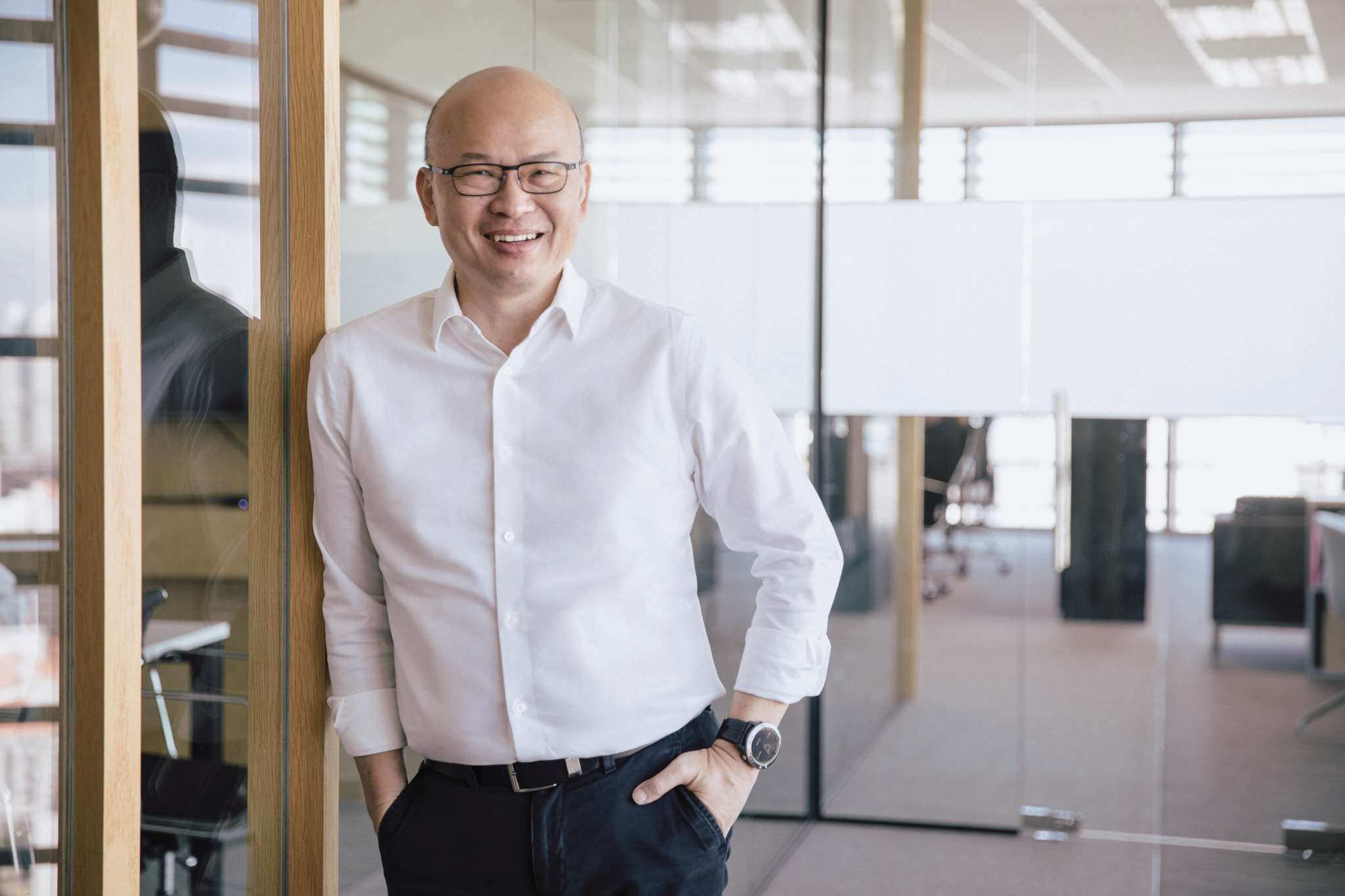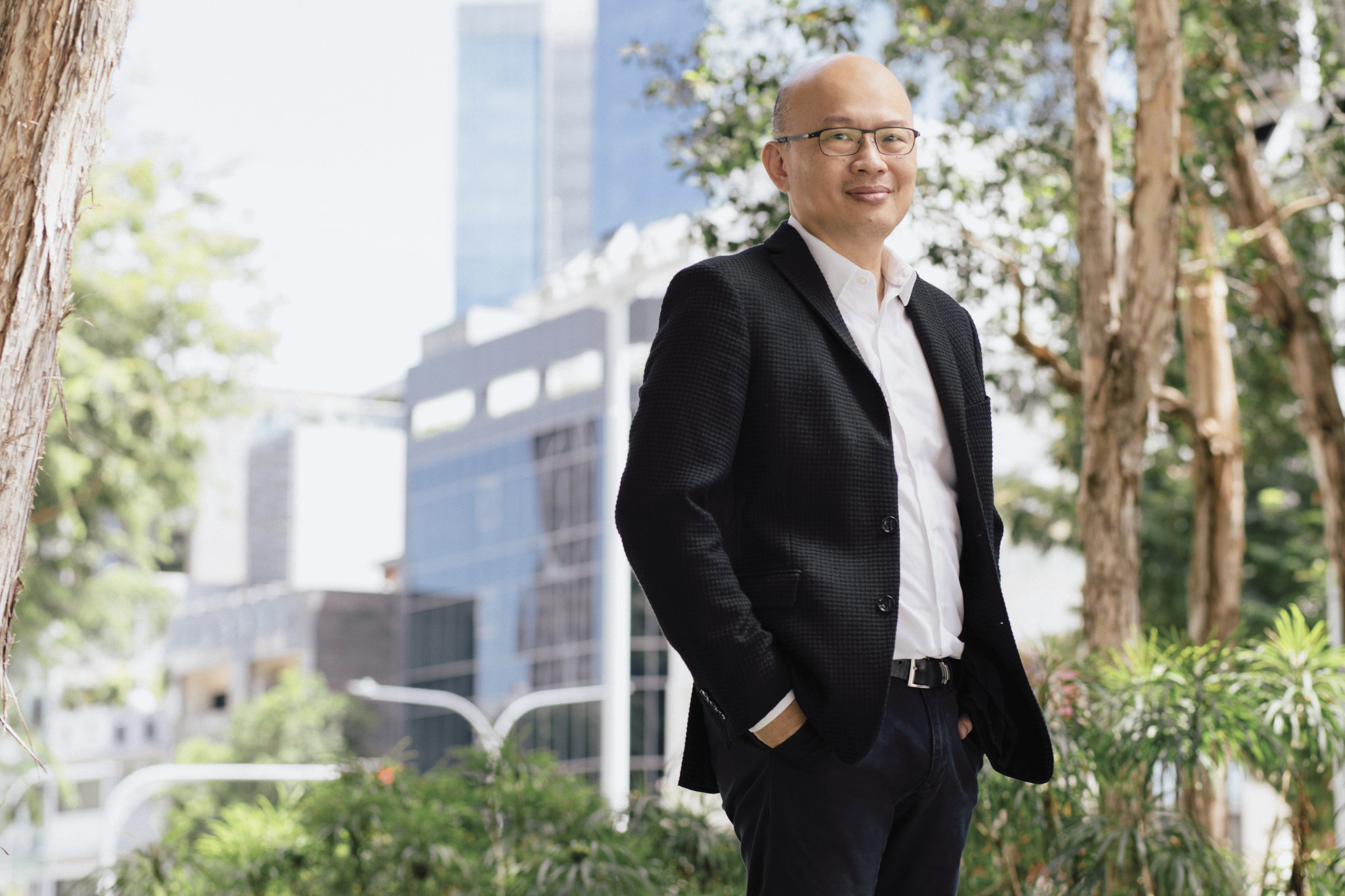Match.com Founder, Longhorn Is on a Mission to Improve Education Access

Peng Ong still remembers the first time he got to explore a computer. He was around 13 years old, well before MacBooks sat upon desks and tables everywhere, and the TRS-80 Micro Computer System was for sale at a department store in his native Singapore.
“I would just stand there and play with one of the computers, and I started programming it,” Ong says. “Which was a waste of time because every time you program it, then you walk away, and someone would reset it. But it was a great way to tinker with it.”
That love of computers has taken Ong on a journey across the world to The University of Texas, behind the scenes as one of the founders of Match.com, and now back to Singapore as an investor and adviser behind dozens of tech companies.
Ong, BS ’86, Life Member, had never been to Texas before he came to UT—most everything he knew about the state was based on the cowboys and oilmen he had seen on Dallas. But it was one of the best computer science schools in the world, and tuition was about $40 per credit hour when he applied—cheaper than his local university in Singapore. He enrolled as an electrical engineering student, unraveling some of the secrets behind the computers that fascinated him.
“It’s the fundamentals around computers,” he says. “I like to know how things I play around with work.”
After his time at UT, Ong immediately packed his car and headed north to earn his master’s in computer science from the University of Illinois at Urbana-Champaign, working as a software engineer for Gensym, Sybase, and Illustra after he graduated. Then, Ong met Gary Kremen, who had also studied in Illinois and gone on to earn an MBA from Stanford. Combining Ong’s knowledge of computers and software with Kremen’s business sense, they decided to form a company. The pair landed on the idea of specialized digital classifieds. At first, they registered multiple domain names they could pursue.
“We had all the domains—we even had Cars.com,” Ong says. “At that point, you could register anything.” But Ong simply says only one became a fully formed business: Match.com, one of the first dating sites, launched in 1995.
At first, Kremen and Ong planned to include a phone, email, and web component to Match.com before dropping everything else to focus on just a website, matching those looking for a date or relationship in one convenient place. But centering on a website created one issue unique to the ’90s internet landscape.
“At that point, our demographics were like 90 percent men, so we ended up just marketing to women,” Ong laughs. “That was the internet back then: just a bunch of engineers.”
Ong left Match.com in 1996, the same year as Kremen, to start his next company, Interwoven.
“[At Match,] I learned about the importance of having the right leadership,” Ong says. “You have many people working together, putting stuff on the life mission critical thing called the website, and people breaking the website all the time because the workflow was not properly managed.”
Realizing his background in engineering could help create solutions to the content management issues he’d seen at Match.com, Ong went on to found software development company Interwoven in 1996 and Encentuate, which created an identity and access management software product later acquired by IBM, in 2002.

Now he serves as managing partner of Monk’s Hill Ventures, a venture capital fund in Singapore investing in early-stage businesses, which he co-founded in 2014. Ong says Monk’s Hill invests mainly in tech-enabled companies—those using existing technology to make things more efficient in the day-to-day lives of those in emerging markets (or, areas with still developing economies), where they can make the most impact. One example is ErudiFi, which helps students in Southeast Asia pay for schooling by partnering with schools to split costs over several months instead of in one large payment at the beginning of the school year—something that was a real issue for families during the COVID-19 pandemic.
“Most of our companies are fairly impactful,” Ong says. “I like to say, if you are investing in emerging markets, you’re generally an impact investor. Even though you’re just focusing on building big company profits, all that stuff, people are not going to pay you their hard-earned money if you’re not helping them.”
But outside of his business ventures, Ong is passionate about improving education access across the world. In 2014, Ong was invited to give a speech at the Africa Innovation Summit in Cape Verde about knowledge-based economies, where someone pointed out that for a knowledge-based economy, you need knowledgeable workers. Over the course of the conference, he met with other leaders and began discussing the issues surrounding education.
“Education is one of the best-funded charitable donation categories in the world, and it’s still a mess for multiple reasons. One of which is corruption—the money doesn’t go to educating the kids. But the other one is just the sheer scale of the problem and the current of pedagogical systems don’t allow it to scale well,” Ong says. “The lightbulb we had was, you don’t actually need physical things. You don’t need schools, you don’t need roads, you don’t need teachers if you can achieve putting information directly in the heads of kids.”
The result is a nonprofit called Solve Education!, where Ong serves as chairman. The organization developed an educational game meant to be accessible from anywhere, even on low-end phones or in places with intermittent internet connectivity.
Ong is also still involved with his alma mater, serving on UT’s International Advisory Board (IBA).
“Peng is a visionary leader and a dedicated Longhorn with a passion for UT’s students and faculty, well as the global mission of UT,” IBA Chair Henning Kreke says. “He is on the cutting edge of the tech industry, thinks big, inspires others, and continually challenges the IBA to push for scale.”
And with all of his experience in tech, Ong is still focused on making things work better.
“That’s the engineer in me, who believes that you can build things to improve people’s lives,” he says.
CREDIT: Juliana Tan





